Central Military Commission may refer to:

The Chinese Communist Party (CCP), officially the Communist Party of China (CPC), is the founding and sole ruling party of the People's Republic of China (PRC). Under the leadership of Mao Zedong, the CCP emerged victorious in the Chinese Civil War against the Kuomintang. In 1949, Mao proclaimed the establishment of the People's Republic of China. Since then, the CCP has governed China and has had sole control over the People's Liberation Army (PLA). Successive leaders of the CCP have added their own theories to the party's constitution, which outlines the party's ideology, collectively referred to as socialism with Chinese characteristics. As of 2023, the CCP has more than 98 million members, making it the second largest political party by membership in the world after India's Bharatiya Janata Party.
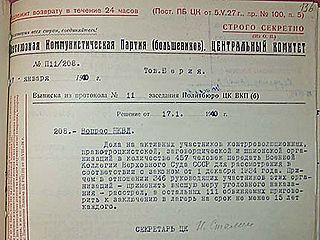
A politburo or political bureau is the highest political organ of the central committee in communist parties. It is present in most former and existing communist states.
A communist state is a form of government that combines the state leadership of a communist party, Marxist–Leninist political philosophy, and an official commitment to the construction of a communist society. Communism in its modern form grew out of the socialist movement in 19th-century Europe and blamed capitalism for societal miseries. In the 20th century, several communist states were established, first in Russia with the Russian Revolution of 1917 and then in portions of Eastern Europe, Asia, and a few other regions after World War II. The institutions of these states were heavily influenced by the writings of Karl Marx, Friedrich Engels, Vladimir Lenin, Joseph Stalin and others. During most of the 20th century, around one-third of the world's population lived in communist states. However, the political reforms of Soviet leader Mikhail Gorbachev known as Perestroika and socio-economic difficulties produced the revolutions of 1989, which brought down all the communist states of the Eastern Bloc bar the Soviet Union. The repercussions of the collapse of these states contributed to political transformations in the Soviet Union and Yugoslavia and several other non-European communist states. Presently, there are five communist states in the world: China, Cuba, Laos, North Korea and Vietnam.

The Communist Party of Vietnam (CPV), also known as the Vietnamese Communist Party (VCP), is the founding and sole legal party of the Socialist Republic of Vietnam. Founded in 1930 by Hồ Chí Minh, the CPV became the ruling party of North Vietnam in 1954 and then all of Vietnam after the collapse of the South Vietnamese government following the Fall of Saigon in 1975. Although it nominally exists alongside the Vietnamese Fatherland Front, it maintains a unitary government and has centralized control over the state, military, and media. The supremacy of the CPV is guaranteed by Article 4 of the national constitution. The Vietnamese public generally refer to the CPV as simply "the Party" or "our Party".
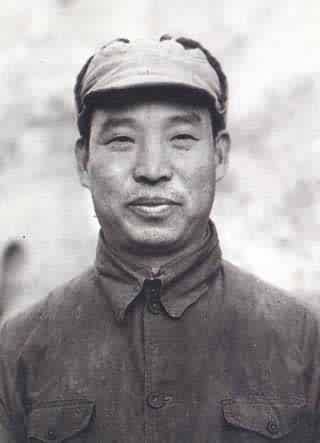
Peng Zhen was a leading member of the Chinese Communist Party. He led the party organization in Beijing following the victory of the Communists in the Chinese Civil War in 1949, but was purged during the Cultural Revolution for opposing Mao's views on the role of literature in relation to the state. He was rehabilitated under Deng Xiaoping in 1982 along with other 'wrongly accused' officials, and became the inaugural head of the Central Political and Legal Affairs Commission.
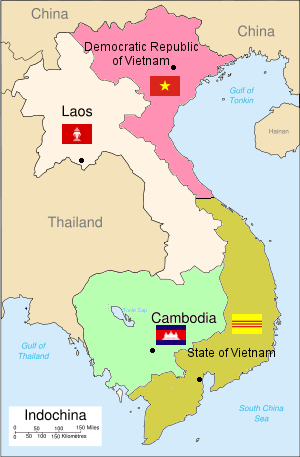
The Geneva Conference was a conference that was intended to settle outstanding issues resulting from the Korean War and the First Indochina War and involved several nations. It took place in Geneva, Switzerland, from 26 April to 20 July 1954. The part of the conference on the Korean question ended without adopting any declarations or proposals and so is generally considered less relevant. The Geneva Accords that dealt with the dismantling of French Indochina proved to have long-lasting repercussions, however. The crumbling of the French colonial empire in Southeast Asia led to the formation of the states of the Democratic Republic of Vietnam, the State of Vietnam, the Kingdom of Cambodia, and the Kingdom of Laos. Three agreements about French Indochina, covering Cambodia, Laos, and Vietnam, were signed on 21 July 1954 and took effect two days later.
Central Control Commission (or committee or collegium) may refer to:
Civilian control of the military in socialist states, commonly referred to as communist states by foreign observers, have differed from country to country. There are typically three models of civilian control of the military: party-run, state-run, and hybrid. All three models have a communist party as an internal organisation in the military.
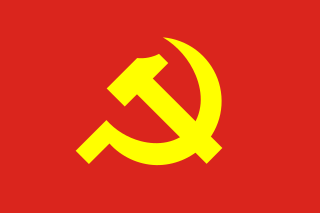
The general secretary of theCommunist Party of VietnamCentral Committee, simply and informally the general secretary, is the current title for the holder of the highest office within the Communist Party of Vietnam and practically being the highest position in the politics of Vietnam. The general secretaryship used to be the second-highest office within the party when Hồ Chí Minh was the chairman, a post which existed from 1951 to 1969, and since 1969, the general secretary has generally been regarded as the highest leader of Vietnam. The general secretary also holds the title of the secretary of the Central Military Commission, the leading party organ on military affairs. The current general secretary is Nguyễn Phú Trọng, ranking first in the Politburo. The position was once designated the first secretary from 1951 to 1976.
A supreme leader or supreme ruler typically refers to the person among a number of leaders of a state, organization or other such group who has been given or is able to exercise the most – or complete – authority over it. In a religion, this role is usually satisfied by a person deemed to be the representative or manifestation of a deity or God on Earth. In politics, a supreme leader usually rules over an authoritarian or totalitarian government and has a cult of personality associated with them. Historic examples are Adolf Hitler of Nazi Germany, Francisco Franco of Francoist Spain, Benito Mussolini of Fascist Italy and Joseph Stalin of the Soviet Union.

Li Desheng was a general in the Chinese People's Liberation Army. He was born in Xin County, Henan, China, an area now known as the "Cradle of Generals" for the large number of senior military officers born in the region. He joined the Chinese Workers' and Peasants' Red Army at the age of 14, in 1930, the Communist Youth League in 1931, and the Chinese Communist Party a year later. He attained the rank of major general in 1955, and general in 1988. The patterns of Li's advancement suggest that he was mentored by Chen Xilian, and that he was closely aligned with You Taizhong. Li Desheng served on the Politburo of the Chinese Communist Party from 1969–1985, one of the most turbulent periods of the People's Republic. He died in Beijing on 8 May 2011.

The Workers' Party of Korea (WPK) is the sole ruling party of the Democratic People's Republic of Korea, commonly known as North Korea. Founded in 1949 from the merger of the Workers' Party of North Korea and the Workers' Party of South Korea, the WPK is the oldest active party in Korea. It also controls the Korean People's Army, North Korea's armed forces. The WPK is the largest party represented in the Supreme People's Assembly and coexists with two other legal parties making up the Democratic Front for the Reunification of Korea. However, these minor parties are completely subservient to the WPK and must accept the WPK's "leading role" as a condition of their existence. The WPK is banned in the Republic of Korea under the National Security Act and is sanctioned by the United Nations, the European Union, Australia, and the United States.

The Central Military Commission of the Workers' Party of Korea (CMC) is an organ of the Central Committee of the Workers' Party of Korea (WPK) which heads the Korean People's Army (KPA).
Communism in Vietnam is linked to the Politics of Vietnam and the push for independence. Marxism was introduced in Vietnam with the emergence of three communist parties: the Indochinese Communist Party, the Annamese Communist Party, and the Indochinese Communist Union, later joined by a Trotskyist movement led by Tạ Thu Thâu. In 1930, the Communist International (Comintern) sent Nguyễn Ái Quốc to Hong Kong to coordinate the unification of the parties into the Vietnamese Communist Party, with Trần Phú as its first Secretary General.
Secretary is a title often used in organizations to indicate a person having a certain amount of authority, power, or importance in the organization. Secretaries announce important events and communicate to the organization. The term is derived from the Latin word secernere, "to distinguish" or "to set apart", the passive participle meaning "having been set apart", with the eventual connotation of something private or confidential, as with the English word secret. A secretarius was a person, therefore, overseeing business confidentially, usually for a powerful individual.

In North Korea, the Political Bureau of the Central Committee of the Workers' Party of Korea (WPK), or simply the Politburo, formerly the Political Committee (1946–61), is the highest decision-making body in the ruling party between sessions of its Central Committee. Article 25 of the Party Charter stipulates that "The Political Bureau of the Party Central Committee and its Standing Committee organize and direct all party work on behalf of the party Central Committee between plenary meetings. The Political Bureau of the Party Central Committee shall meet at least once every month." The Politburo is elected by the Central Committee of the Workers' Party of Korea.

Yang Yong was a general in the People's Liberation Army of China. He served as the secretary of the Secretariat of the Chinese Communist Party between September 1982 and January 1983, and governor of Guizhou, from January 1950 to April 1951.

Zhang Tingfa was a Chinese Communist revolutionary and a major general of the People's Liberation Army Air Force (PLAAF). He served as Political Commissar and Commander of the PLAAF, and was a member of the Central Military Commission (CMC). He also served two terms as a member of the Politburo of the Chinese Communist Party, before retiring in 1985. He fought in the Second Sino-Japanese War, the Chinese Civil War, and the Korean War, and commanded the Chinese Air Force during the Sino-Vietnamese War.
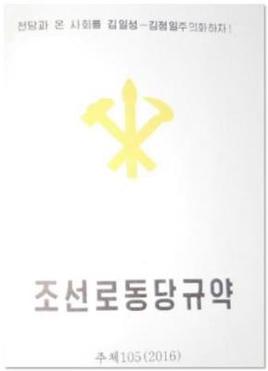
The Rules of the Workers' Party of Korea are the by-laws of the Workers' Party of Korea (WPK). It sets the rules of the organization and membership of the party. According to the rules, the WPK Congress is the highest body of the party and it, along with the WPK Conference, can amend the rules. The rules defines the character, task, and methodology of the party. According to it, the Party strives to impose communism on the whole of the Korean Peninsula. Recent revisions of the rules have defined Kimilsungism–Kimjongilism as the ideology of the party.
Chairman of the Central Military Commission may refer to: